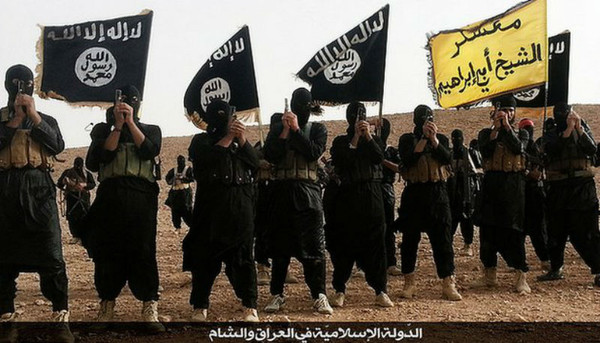
ISIS: A personal interpretation
For the American expatriate writer Ernest Hemingway, Paris in the 1920s was “A Moveable Feast.” Last Friday night Paris became a moveable massacre. The ISIS murderers stopped the music, interrupted the game, ended the wining and dining.
Their automatic rifles and bombs not only ripped through flesh and bone, killing and maiming indiscriminately, setting off waves of grief among friends and families of the victims around the world. They also stuck a dagger into the heart and soul of Paris.
But the killjoy killers won’t succeed in spoiling the feast forever. The French people and their leaders, often portrayed in this country as soft and decadent, almost instantly responded in a way that belies that stereotype.
Defiance. Determination. Pride. As they were being led from the soccer stadiums outside of which one of the attacks took place fans began spontaneously singing the national anthem, the Marseillaise. There was, finally, a determination to fight back — “mercilessly” — in the words of French President Francois Hollande. Those words were soon turned to action when the French Air Force carried out attacks described as “massive” against the ISIS heartland in the Middle East.
The Paris attacks were, of course, not the first atrocities that ISIS has committed. They have done worse things in Syria and Iraq. They recently murdered many people by downing a Russian civilian airliner and carrying out mass killings in Beirut and Ankara.
Yet, by hitting a city that is symbolic of a certain attitude toward life, call it joie de vivre, this latest and most heinous bunch of terrorists betrayed something about their own attitude toward life, which is to be against it.
More than an ideological sect or a radical religious group, ISIS represents something akin to a cult of death. Their entire symbolic presentation — black clad killers carrying out beheadings and other gruesome killings, recorded and distributed, the destruction of not only lives but also legacies, the cultural remnants of lives past and ancient civilizations, reflects a celebration of death.
Symptomatic of this the fact is that ISIS has no Ayatollah Khomeini, not even an Osama Bin Laden. Even Al-Qaeda had theological and philosophical precursors and guides. Who is the ISIS spiritual leader? There isn’t one because, despite the stated ISIS project of establishing a new Islamic super-state, a regional or global Islamic caliphate, the theological political, economic, and social content of this imaginary entity is vacuous.
I think the caliphate idea is an empty shell, more a pretext than a project. It serves a number of useful purposes, as a Utopia to attract recruits and a positive materialization of what ISIS really is, a negative energy or the absence of energy: death.
Trying to grasp the ISIS phenomenon historically and philosophically the best analog I could find is nihilism. The historical precedent is relevant but the philosophical content is more instructive. Historically: The dictionary describes nihilism as “the program of a 19th century Russian party advocating revolutionary reform and using terrorism and assassination.” Nothing that unusual about that. The definition of nihilism as an outlook, however, gets closer to the heart of the matter, to the essence of ISIS: “A doctrine or belief that conditions in the social organization are so bad as to make destruction desirable for its own sake independent of any constructive program or possibility.”
How does such a mindset develop? Some psychologists have compared the mentality that drives organized mass murder as one carried out by people similar to serial killers (for whom the victim is more an object than a person) inspired by a charismatic personality or idea.
However, we should not forget that the breeding ground that allowed for such a monster as ISIS to emerge was provided by George W. Bush’s disastrous invasion of Iraq. The war opened Pandora’s box from which came the unraveling of much of the Middle East. ISIS, specifically, was an offshoot of the branch of Al-Qaeda set up in Iraq as a response to the American occupation and the general chaos in the country.
Bush played sorcerer’s apprentice based on the delusion that he could bring democracy to the entire Middle East through shock and awe. ISIS is one of the late aftershocks of that original sin. The virus unleashed when Bush stumbled into Iraq against the opposition of most area experts and criticism across the world is proving difficult to eradicate. To do it will require unity, strength and endurance. I hope the world can at least rally around fighting against nihilistic murderers.
Friday, Paris was a moveable massacre. Last weekend, it was a moveable mourning. Tomorrow, the feast must return. The cult of death cannot be allowed to prevail.

